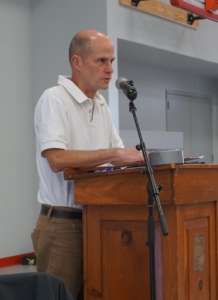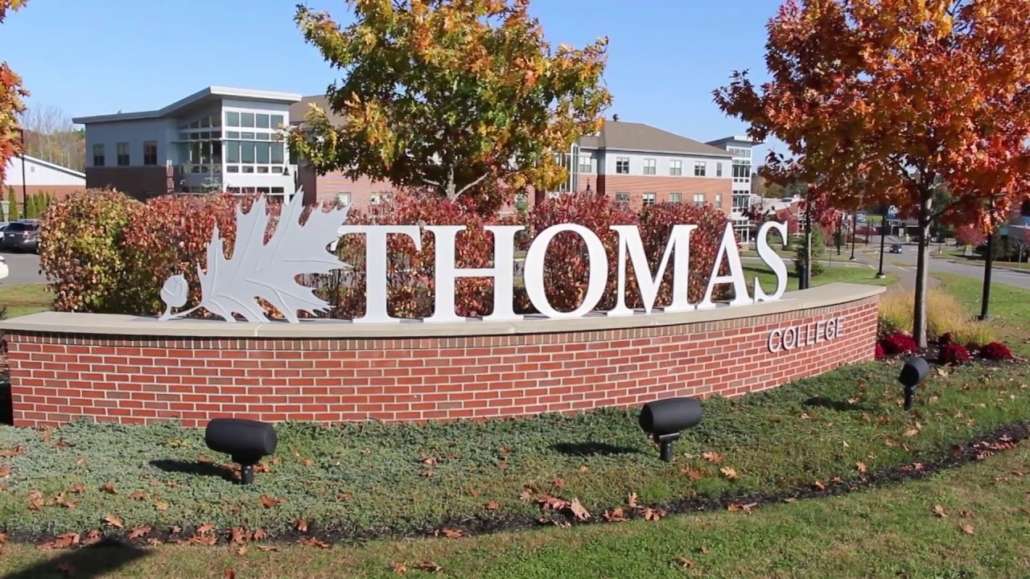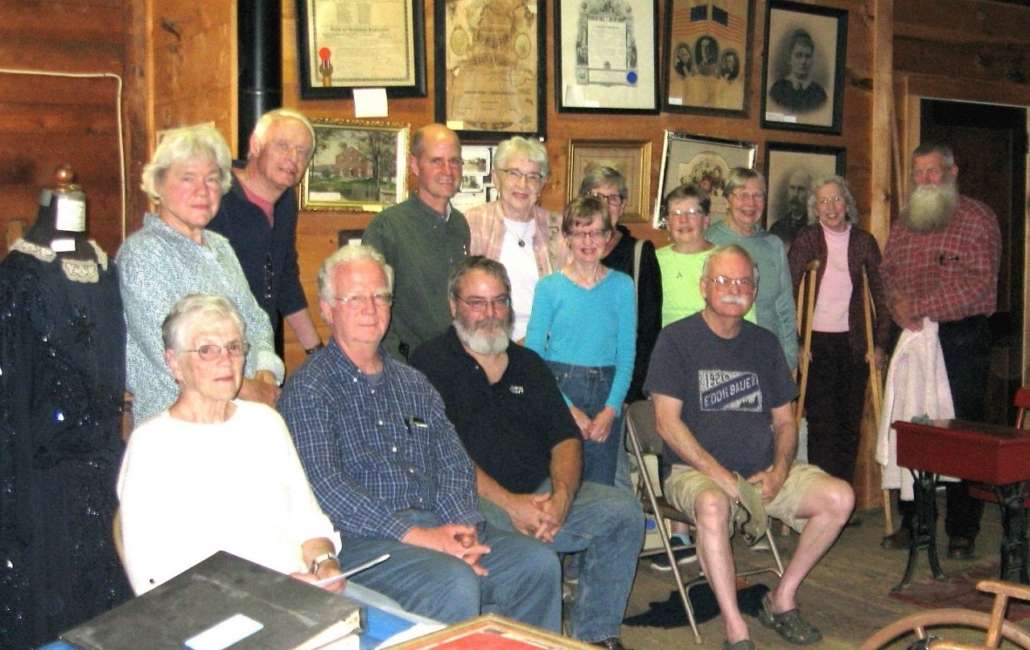Celebrating 75 Years: China Historical Society annual meeting and China Elementary School Anniversary

A large crowd gathered at the China Middle School for a nostalgic journey by the China Historical Society (photo by Eric Austin)
by Eric W. Austin
The annual meeting of the China Historical Society, held on Thursday, July 18, was a delightful blend of business and nostalgia. This year, the meeting doubled as a celebration of the 75th anniversary of the China Elementary School, a cornerstone of our community since 1949. The event, hosted in the gymnasium of what is now the China Middle School, saw about three dozen attendees come together to reminisce and reflect.
Founded in 1974, the China Historical Society has been dedicated to preserving the rich history of our town. The society is always looking for new members, with annual dues set at a modest $10 to support the cause. Prospective members can sign up at the town office. The society is also working on launching a website and a Facebook page to keep everyone updated on upcoming events.
This event was video recorded and will eventually be made available to the public, likely on the (soon to be set up) YouTube channel for CHS.
The annual meeting kicked off with the usual business, including the approval of last year’s minutes and the election of new officers, with Robin Adams Sabattus stepping in as the newest board member. Scott McCormac, current President of the Historical Society, underscored the importance of their mission, and highlighted the challenges of consolidating historical information in one place.
The event then shifted gears to celebrate the 75th anniversary of the China Elementary School. Built in 1949, the school replaced numerous small “one-room” schoolhouses scattered across town. These smaller schools were essential before the days of a bus system, ensuring that every child had a school within walking distance. When the new elementary school opened, all the small schools closed simultaneously, leading to initial overcrowding in the new building.
Historical tidbits from the original dedication bulletin reveal that the town appropriated $10,000 for the new school’s construction over three years, with master builder Louis Z. Masse overseeing the project. Letha Wilson served as the first principal, and G. Wayland Jones was the Master of Ceremonies at the dedication.
The highlight of the celebration was hearing from former students like Richard Dillenbeck and Shirley Fitzgerald, members of the first eighth-grade class to graduate from the new school in 1949. Dillenbeck shared a humorous memory about the excitement of having running water and indoor bathrooms, recalling the uncomfortable “three-hole” outhouses they used before. Fitzgerald reminisced about playing games like hopscotch and tag during recess and noted that only four of the original 23 classmates are still alive today.

Richard Dillenbeck, left, and Shirley Fitzgerald reminisce about their days at China Elementary School. (photo by Eric Austin)
Former teacher Wayne Bengtson, who taught at the school from 1968 to 2008, also shared some of his memories. He recalled the influx of students in the 1980s after China students scored well on the first Maine State Educational Assessment standardized tests.
After the reminiscences, long-time custodian Tim Roddy led a tour of the school, including a visit to the basement, which once served as the school cafeteria during its early days. The tour was a hit, offering a trip down memory lane for many attendees.
The China Historical Society continues to engage the community with projects like an upcoming display at the Albert Church Brown Memorial (China Village) Library about the narrow-gauge railroad. Bob Bennett is also working on organizing a tour of the railroad for later in the summer, promising more opportunities for residents to connect with their local history.
The anniversary celebration was a heartwarming reminder of the strong community bonds that exist in the town of China, Maine. The Historical Society’s efforts to preserve and share local history ensure that future generations will also know the stories that shaped their town. Residents are encouraged to join the society and participate in future events, contributing to the rich tapestry of China’s history.




 The Sheepscot Lake Association will be hosting Maine Audubon Biologist Ethan Daly at their annual meeting Thursday, July 25, to discuss the Audubon’s Loon Restoration Project. Ethan Daly will be discussing Loon Restoration. Ethan grew up in New Hampshire and moved to Maine in 2024. He attended Boston College where he studied environmental science. He’s been working with Maine Audubon’s Loon Restoration Project since March and thoroughly enjoys monitoring loons and working with volunteers. Outside of work he enjoys hiking, cycling, and his guitar.
The Sheepscot Lake Association will be hosting Maine Audubon Biologist Ethan Daly at their annual meeting Thursday, July 25, to discuss the Audubon’s Loon Restoration Project. Ethan Daly will be discussing Loon Restoration. Ethan grew up in New Hampshire and moved to Maine in 2024. He attended Boston College where he studied environmental science. He’s been working with Maine Audubon’s Loon Restoration Project since March and thoroughly enjoys monitoring loons and working with volunteers. Outside of work he enjoys hiking, cycling, and his guitar.
 Over half a million dollars in miscellaneous payments
Over half a million dollars in miscellaneous payments

 Thomas College, in Waterville, has announced undergraduate students named to the Spring 2024 honors list.
Thomas College, in Waterville, has announced undergraduate students named to the Spring 2024 honors list.

